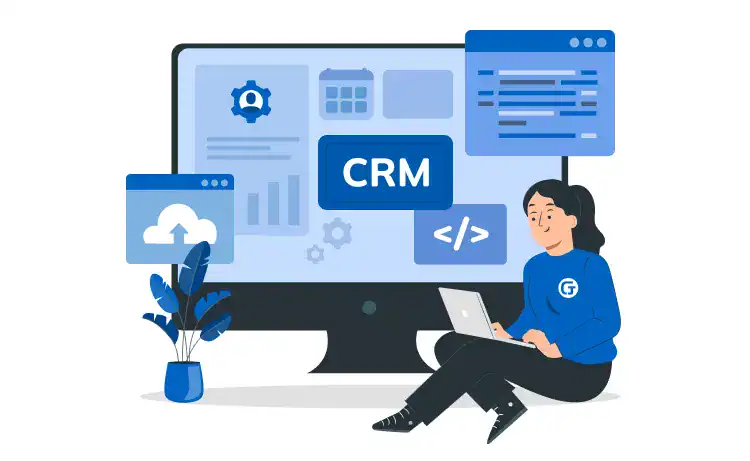The real estate sector in the Arab world is rapidly evolving. With the rise of digital platforms, Multiple Listing Services (MLS) have become essential tools for real estate professionals. These platforms provide a centralized database where brokers and agents list properties for sale or rent, enhancing transparency and efficiency in the market. As MLS platforms become more widespread in Arab countries such as the UAE, Saudi Arabia, Egypt, and others, understanding the legal responsibilities of MLS administrators becomes increasingly important.
MLS administrators oversee the operation and management of these platforms. Their role goes beyond just managing software — they are also custodians of the platform’s legal compliance, data integrity, user trust, and overall market fairness. This article offers an in-depth exploration of the legal duties MLS administrators hold, challenges they face, and best practices they should follow to operate within the legal frameworks of Arab countries.
The Role of MLS Administrators in the Arab Real Estate Market
MLS administrators serve as gatekeepers of real estate information. Their responsibilities typically include managing listings, verifying data, ensuring smooth technical operations, and facilitating communication between sellers, buyers, and agents. In the Arab context, MLS platforms are growing rapidly due to government initiatives aimed at digitizing real estate services. Countries like the UAE have launched smart city projects, Saudi Arabia is aggressively diversifying its economy under Vision 2030, and Egypt is streamlining real estate regulations to attract investment.

MLS administrators play a pivotal role in ensuring these platforms operate legally and effectively. Their work directly impacts market transparency, consumer protection, and the overall reputation of the real estate industry.
Ensuring Accuracy and Transparency of Listings
One of the most critical responsibilities of MLS administrators is ensuring that property listings are accurate, up-to-date, and truthful. Buyers and renters rely heavily on MLS platforms to make informed decisions, so incorrect or misleading information can cause significant harm.
In the Arab world, where consumer protection laws are evolving, inaccurate listings can lead to legal consequences for both the platform and the agents involved. For instance, the UAE’s Consumer Protection Law prohibits false advertising, and similar regulations exist in Saudi Arabia and Egypt.
To meet these legal obligations, MLS administrators must implement verification processes for listings. This can include cross-checking property details with official documents, conducting periodic audits of listings, and providing easy ways for users to report suspicious or fraudulent content.
Maintaining transparency also means displaying terms and conditions of property transactions, rental agreements, and ownership status on the MLS platform. The more transparent and reliable the platform is, the more it can foster user trust and encourage market participation.
Data Privacy and Protection
MLS platforms handle sensitive personal data, including names, contact information, financial details, and sometimes even identity documents. Protecting this information is not only an ethical obligation but also a strict legal requirement under many Arab data protection laws.
For example, the UAE introduced the Federal Decree-Law No. 45 of 2021 on Personal Data Protection, which regulates how personal data must be collected, stored, processed, and shared. Saudi Arabia’s Personal Data Protection Law (also abbreviated PDPL) similarly requires companies to secure user consent before collecting data and to safeguard it from unauthorized access.
MLS administrators must therefore invest in robust cybersecurity measures, such as encryption, multi-factor authentication, and secure cloud storage solutions. Regular security audits and employee training on data privacy are also essential.
Data breaches can lead to severe penalties, including fines and legal actions. More importantly, a breach erodes user confidence and can irreversibly damage the MLS platform’s reputation.
Intellectual Property and Copyright Compliance
MLS listings typically include images, videos, floor plans, and written descriptions. These materials are often the intellectual property of photographers, real estate agents, or marketing firms. Protecting copyrights and respecting intellectual property rights is a legal necessity.
Administrators must ensure that all content uploaded to the platform has the proper rights and permissions. This involves establishing clear terms regarding content ownership and obtaining licenses where needed. When unauthorized use or copyright infringement occurs, administrators must act swiftly to remove the offending content to avoid liability.
In many Arab countries, copyright laws are becoming more enforced, with governments strengthening their intellectual property frameworks to align with international standards. MLS platforms that ignore copyright issues risk costly legal disputes and damage to their standing in the market.
Preventing Discrimination and Upholding Fair Access
MLS platforms must operate in a manner that is fair and non-discriminatory. This means they should not allow property listings or user policies that exclude individuals based on nationality, religion, gender, or other protected characteristics.
Arab countries have made significant strides toward ensuring equal housing rights. For instance, the UAE enforces laws that prohibit discrimination in rental and sales agreements. Saudi Arabia’s recent reforms promote inclusivity in housing and real estate services. Egypt’s constitution guarantees equality before the law, including property rights.
MLS administrators must create and enforce platform policies that comply with these regulations. This can include guidelines on listing language, user registration, and complaint resolution procedures that actively discourage bias or exclusion.
Ensuring fair access not only complies with the law but also expands the user base and improves market fluidity.
Managing User Agreements and Dispute Resolution
Users of MLS platforms—whether agents, brokers, or private sellers—enter into contractual agreements when registering. These agreements define the rights and obligations of all parties, including rules for listing properties, payment of fees, use of data, and dispute handling.
Administrators have a legal responsibility to enforce these agreements fairly. This includes managing suspensions or bans of accounts when necessary and providing transparent mechanisms for users to resolve conflicts.
Proper management reduces the risk of litigation and maintains a positive, cooperative environment on the platform. Transparent dispute resolution also helps build trust among users, encouraging ongoing participation.
Cybersecurity and Platform Integrity
Cybersecurity is a pressing legal and operational concern for MLS administrators. Cyberattacks such as hacking, phishing, or ransomware can compromise the integrity of the platform, jeopardize user data, and halt business operations.
Arab countries have enacted specific cyber laws to address these threats. Egypt’s Anti-Cybercrime Law No. 175 of 2018 outlines penalties for unauthorized access, data theft, and system disruption. Similarly, Saudi Arabia and the UAE have comprehensive cybercrime regulations.
Administrators must therefore implement robust defenses, including firewalls, intrusion detection systems, regular backups, and incident response plans. Keeping software up to date and educating staff on security best practices are also key measures.
Failure to protect the MLS platform from cyber threats can lead to legal liabilities, loss of user confidence, and financial damage.
Legal Risks and Challenges
Despite best efforts, MLS administrators face several legal risks. Negligence in removing fraudulent listings, failure to protect user data, copyright violations, and discriminatory practices can all lead to lawsuits or government sanctions.
The digital nature of MLS platforms complicates jurisdictional issues, especially in the Gulf Cooperation Council (GCC) region, where users may come from different countries. Administrators must navigate diverse legal systems and ensure compliance across borders.
Additionally, rapid changes in technology and law require administrators to remain vigilant and adaptable. Keeping up with new regulations, such as emerging data privacy laws or real estate licensing rules, is essential to avoid penalties.
Best Practices for MLS Administrators in Arab Countries
To manage their legal responsibilities effectively, MLS administrators should follow several best practices:
- Develop Clear Terms and Policies: Draft comprehensive Terms of Service, Privacy Policies, and Content Guidelines aligned with local laws. Ensure these documents are easily accessible and regularly updated.
- Verify Listings Thoroughly: Implement processes for validating property information and promptly remove suspicious or fraudulent content.
- Prioritize Data Protection: Invest in cybersecurity measures and comply strictly with data privacy laws. Regularly train staff on security and privacy protocols.
- Respect Intellectual Property: Obtain necessary licenses and act quickly on copyright infringement reports.
- Promote Fairness: Enforce anti-discrimination policies and ensure all users have equal access to the platform.
- Manage Disputes Transparently: Provide clear channels for complaints and fair dispute resolution.
- Collaborate with Regulators: Maintain open communication with government authorities and adapt to regulatory changes proactively.
- Invest in Continuous Training: Keep administrators updated on legal developments and technological advancements.
Working with Regulators and Industry Stakeholders
Collaboration between MLS administrators, regulatory bodies, real estate associations, and technology providers strengthens the ecosystem. In many Arab countries, government agencies are involved in overseeing real estate markets and digital platforms. Examples include the Dubai Land Department, Saudi Arabia’s Real Estate General Authority, and Egypt’s Ministry of Housing.
By maintaining transparent communication and cooperation with such bodies, MLS administrators can better anticipate regulatory changes, access training, and contribute to policy development. This collaboration also helps build credibility and public trust in the platform.
The Future of MLS in Arab Countries and Legal Implications
The adoption of MLS platforms in the Arab world is set to grow significantly in the coming years. Advances such as artificial intelligence for listing verification, blockchain for secure transactions, and augmented reality for virtual tours are transforming how real estate is marketed and sold.
These innovations bring new legal considerations. For instance, using AI to screen listings may raise questions about algorithmic fairness and data transparency. Blockchain’s immutable records demand clear rules about digital contracts. Virtual tours require new privacy safeguards.
MLS administrators must stay ahead of these trends, working with legal experts to update policies and ensure compliance with evolving laws. Doing so will position MLS platforms as trustworthy, modern tools that support sustainable growth in Arab real estate markets.
Conclusion
MLS administrators in Arab countries carry significant legal responsibilities that affect not only the platforms they manage but also the wider real estate market and consumer trust. Their duties encompass ensuring accurate listings, protecting user data, respecting intellectual property, preventing discrimination, enforcing user agreements, and maintaining cybersecurity.
With increasing government focus on digital transformation and legal compliance in real estate, MLS administrators must adopt robust policies, stay informed about legal changes, and foster collaboration with regulators and users.
By fulfilling these legal duties diligently, MLS administrators can help build transparent, efficient, and fair real estate markets in the Arab world—ultimately benefiting buyers, sellers, agents, and the economy as a whole.













